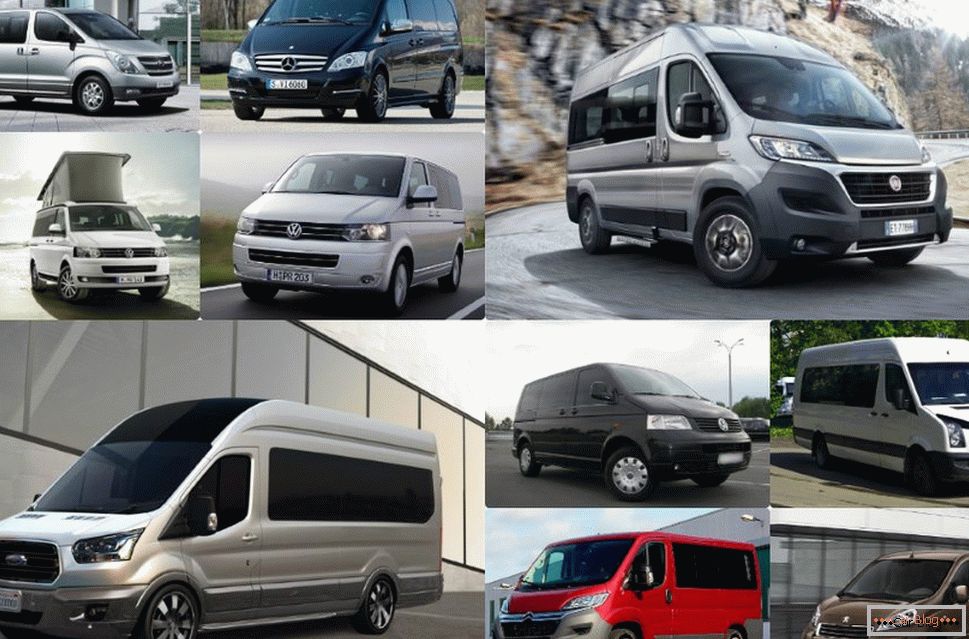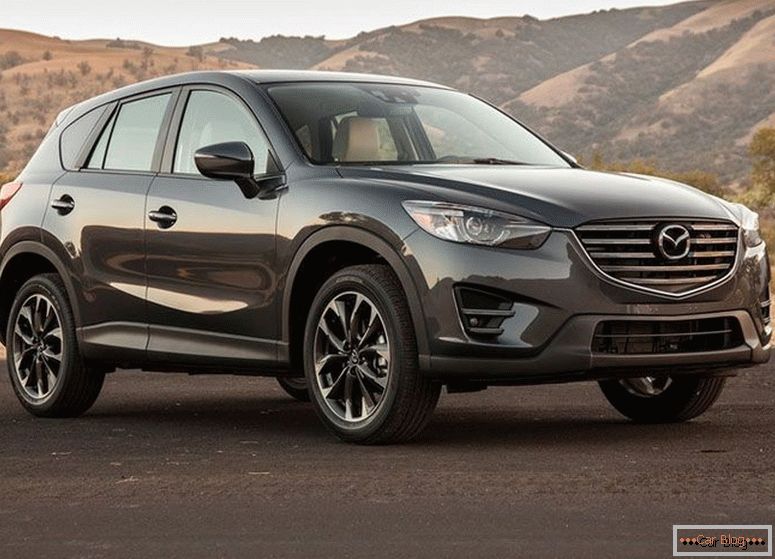An important criterion when choosing a car is its equipment, special attention is paid to the capabilities and characteristics of the engine. To solve the dilemma, which engine is the best is not easy, as there is a desire not only to give preference to the best, but also to save. Those who have experienced first-hand experience of both types know that they are different from each other in terms of both work and care. Therefore, the success of the choice will depend not only on a comparison of their weak and strong sides, conditions of use, but personal preferences. Today, for adherents of both varieties, manufacturers equip the same car models with both gasoline and diesel engines so that there is a choice. They are considered to be internal combustion engines (ICE), which was opened in 1860 by the French Etienne Lenoir. The whole essence of the work of the internal combustion engine is that the consumable fuel burns inside, and only later the motor converts the heat released into mechanical energy.
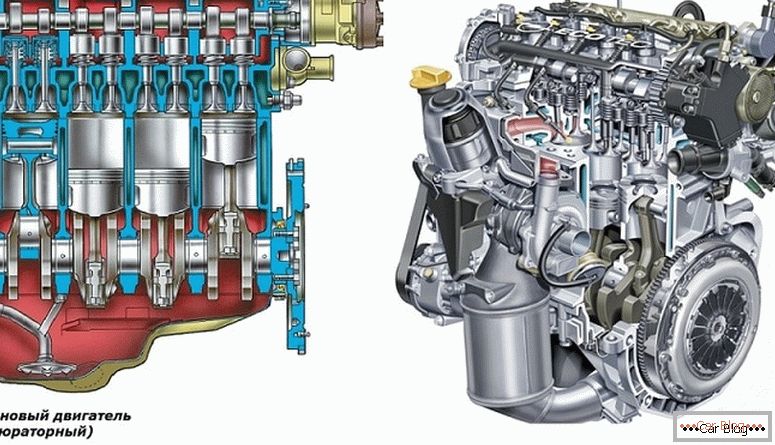
Comparison of diesel engine and gasoline
Content
- 1 Differences and device performance
- 2 Service of diesel and gasoline engines
- 3 Power, Performance and Torque
- 4 Short-term and long-term services
- 5 Difference in performance
- 6 Pros and cons, summarize and compare
- 7 Cost comparison 1 km
- 8 Conclusion
Differences and device performance
Рассмотрим чем отличается дизельный двигатель от бензинового по особенности работы. Конструкции обоих схожи, у того и другого есть поршни, шатуны и цилиндры. Также общими элементами выступают: смазки, газораспределения, система охлаждения, питание и кривошипно-шатунный механизм. Diesel engine содержит усиленные клапаны, коленвал, блок и головки цилиндров, поэтому по размеру и весу превышает. Значительные размеры предполагают восприятие больших нагрузок.
In addition, inside the cylinder pistons have an additional compression ring. Since it is more complicated, its price is higher. The main difference between both engines is their fuel. By name it is easy to understand which one of them that consumes. Interestingly, diesel fuel is less flammable than gasoline, which is a plus for safety. The difference between the gasoline engine and diesel is also available in the location of the combustion chamber. In diesel, it is at the bottom of the piston, and in petrol it is in the cylinder head.
As for the formation of a fuel-air mixture, this process is going on differently, and this is reflected directly in their service. In a diesel engine, the penetrated air in the cylinder heats up while the piston moves up, the temperature can rise to 900 degrees, this happens because the air volume decreases and the pressure increases, sometimes to 5 MPa. Then the fuel enters the nozzles at a pressure of 1500 kgf / cm² and immediately ignites from hot air. After that, the expansion occurs, so pressure builds up in the cylinder. This makes a lot of noise during operation and when burned, the diesel will emit toxic fumes that have an unpleasant odor.
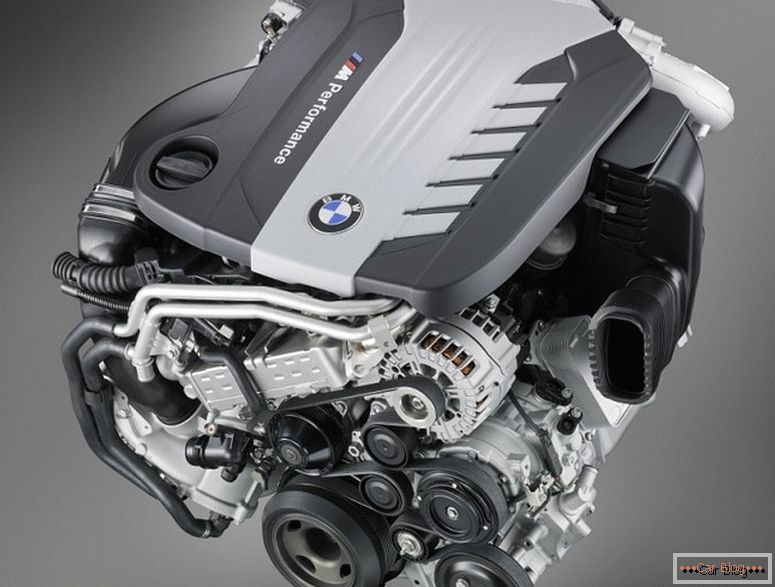
Diesel engine
However, more manned models began to appear, only though they have suffered a significant modernization in isolating sounds over the past decade, but still lag behind gasoline counterparts. If you drive the engine at idle, the sounds are clearly audible, and if you take a gasoline engine, it is generally incomprehensible whether it is running or not. The crash of diesel engines disappears only when the normal speed is reached. But in relation to the selection of changes is not visible. No matter how hard diesel companies try to reduce the sulfur ratio in it, fuel is still releases nitric oxide (NOx) and particulate matter.
See also: What is the VIN-code of the carThe amount of fuel and the injection timing adjustment are carried out by the main unit of the diesel engine - the high-pressure fuel pump (high pressure pump). It even works on cheap oils of poor quality, because it is picky about the volatility of fuel. And because the power of the device is controlled by the fuel supply, the pressure does not fall at low revs. To achieve a good power machine with a diesel engine is capable of already at 2 thousand revolutions.
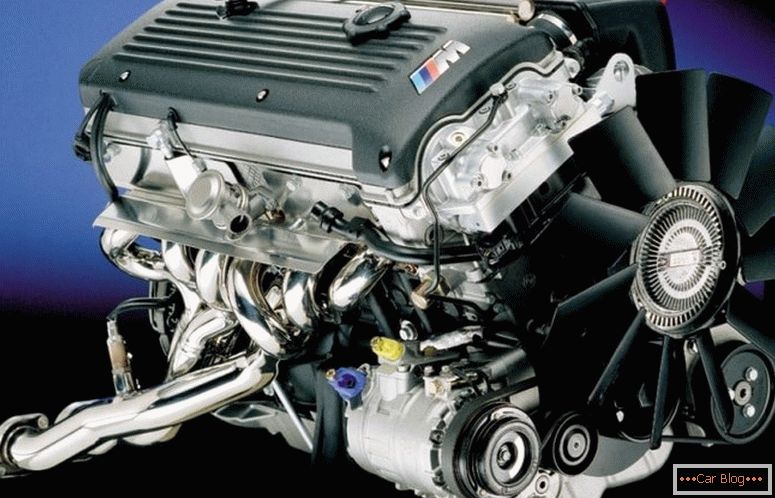
Gas engine
If we talk about the gasoline unit, then its fuel mixture appears in the carburetor or in the injector intake system, when it enters the cylinder it shrinks, and ignition occurs due to a spark of spark plugs. The throttle valve, due to the flow of air, is power adjustment. If you compare, the start of the car with a gasoline engine is not so powerful, because the fuel pump does not give a high pressure. The process is silent, and the emission of CO / CH into the atmosphere is significantly lower than that of the analog. In addition, in the case of diagnostics, gasoline structures are much easier and faster to inspect. In terms of fuel, with sudden changes in temperature is much more stable.
Please note: in diesel devices at low temperatures (below -20 degrees), the coagulation of diesel fuel occurs. Therefore, these engines are not suitable for citizens of the northern regions with an average daily temperature in winter from -25-30 degrees.
Since diesel plugs do not have ignition, and the fuel ignites spontaneously from injection to compressed pressure, at -30 the air in the cylinder does not pick up the required heating temperature and simply does not ignite the fuel. Therefore, this technology is applied, measuring the temperature in the cylinders, as well as spraying fuel at the end of rotation of the motor. When the piston is at the top, the pressure increases and the air heats up, at the same time fuel is injected. In addition, many diesel, as an additional measure have a heating element that supports the necessary heat in the unit.
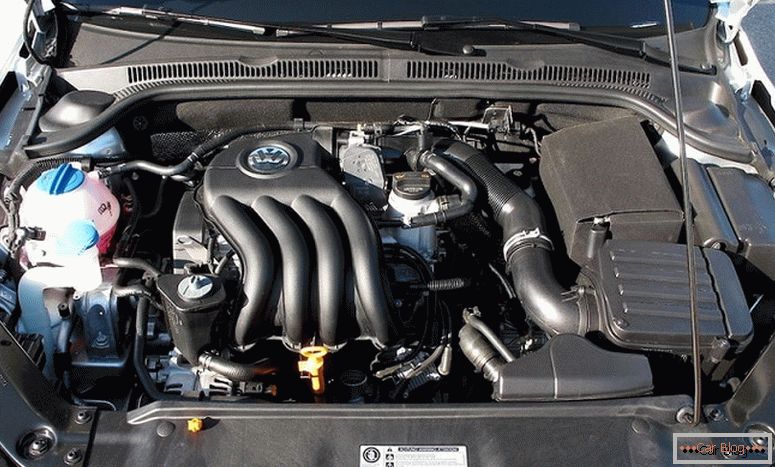
Gasoline engine installed
Service of diesel and gasoline engines
By design, diesel is much more durable and its service life is much longer. However, there is a problem in terms of fuel, since the Russian diesel is not the best in quality, it can spoil the work of the engine. Using average fuel quality leads to frequent replacement of filters and oil. If the motor is broken, its repair will be costly, since the internal structure is more complicated. As for the gasoline, it is more powerful, but in terms of fuel, it is "omnivorous." Spare parts for this type of motor are readily available.
Power, Performance and Torque
Diesel engines have more torque, but petrol engines have more horsepower. When acceleration is required and load capacity is not important, then a gasoline engine is suitable. Due to its simple design, it can reach a lot of high rpm peaks, and this makes it possible to get more horsepower, and then gain acceleration to 100 km / h faster than diesel. But if the brute force is important and the weight of the towed cargo is suitable more diesel. Thanks to the torque, diesel is capable of pulling loads on steep slopes. The engine shows its torque at low revs.
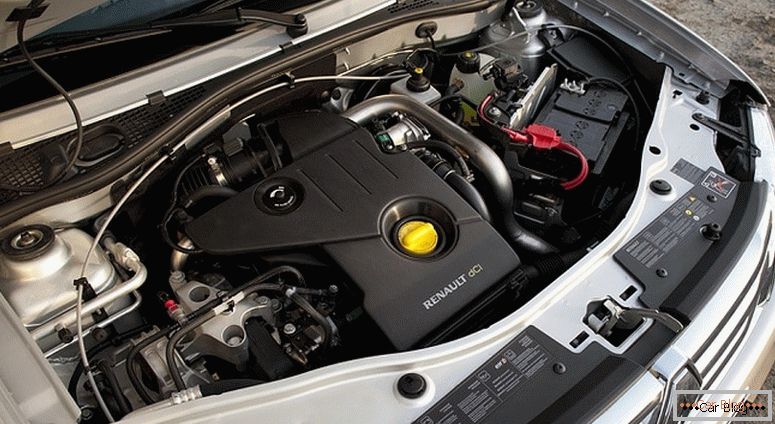
Installed upgraded diesel engine
The diesel unit of the plan - a budget option, as opposed to gasoline, as the level Efficiency can reach 50%, and this is a significant fuel savings. Today, in many European vehicles there is a Common Rail fuel system, which displays time and amount of fuel supplied to the touch panel. This happens due to the installed sensors. The system calculates as close as possible to a milligram. The principle of such dosing helps to gradually increase the pressure, from which the motor works without shaking when changing gears. This system reduces fuel usage by 20%, and torque increases by 25%. For this reason, the efficiency of diesel devices is 40% more than that of analogs.
See also: Japanese car brands: a detailed list with photosShort term and long term services
The difference between a diesel engine and a petrol engine is also in the frequency of maintenance. Frequent maintenance of a diesel engine is expensive, although filters and gaskets should be changed regularly. As for the replacement of engine oil, antifreeze and candles, then the diesel engine has an advantage. The cost of a diesel engine is easily paid for by long service life. It serves three times longer than its counterpart. The engine needs to work in the region of 200 thousand km, so that it requires overhaul.
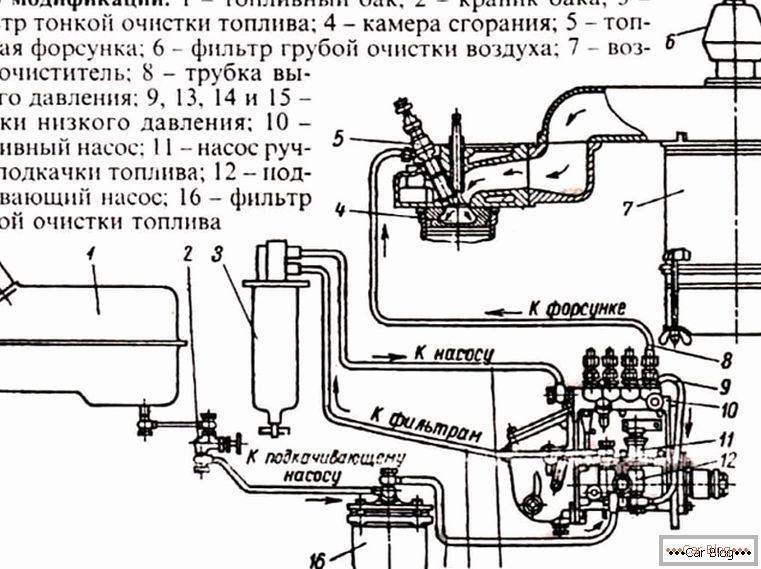
Device of a power supply system of the engine YuMZ, D-65
Performance Difference
No less significant indicators are: fuel consumption and compression ratio. Fuel consumption is an indicator of efficiency. It shows how much fuel is consumed at a power of 1kV. in an hour. Diesel vehicles consume - 200 to 230 g, and gasoline above - 265–305 g. Diesel devices never stall at low revs, very often this happens with their counterparts when the thrust at low revs is reduced. The second indicator shows how many times the mixture is compressed in the cylinder during operation. Diesel have compression ratio 13 - 25 units, but indicators of gasoline occasionally roll over for 12 units.
Pros and cons, summarize and compare
Let's start with the advantages of a gasoline engine:
- price for parts does not hit the bill;
- resistant to bad fuel;
- no noise;
- working properly in minus weather;
- high power;
- it is easy to get parts, as well as to repair in any service.
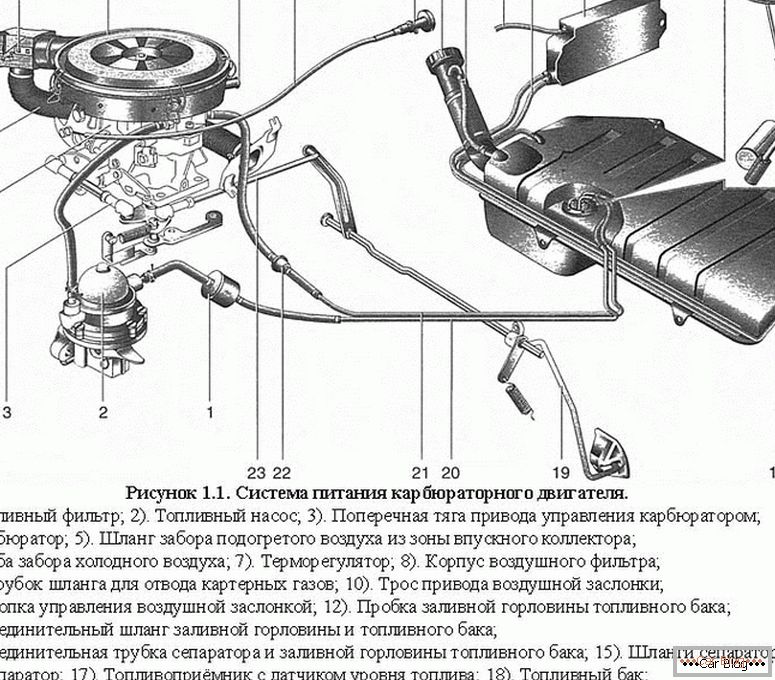
Diagram of a gasoline engine
Pluses of a diesel engine:
- worth accepting;
- no ignition system;
- in the exhaust is less carbon monoxide;
- not as flammable as gasoline;
- fuel performs a dual function as fuel and lubricant;
- diesel consumption is small;
- good off-road;
- not afraid of pollution and moisture;
- high efficiency;
- has high tractive effort at low revs.
Let's run through the minuses of the gasoline engine:
- explosive fuel consumed;
- does not work for long;
- emits exhausts;
- high fuel consumption;
- breaks much more often.
Cons of a diesel engine:
- high quality fuel required;
- low power;
- not all services are taken to maintain diesel engines;
- massive engine dimensions;
- the price for repairs is high;
- accompaniment noise;
- in winter, if you do not take into account tips on use, there may be a snag at startup. Only high-quality fuel ensures engine operation at –55 ° C;
- sometimes does not pull high speed and high revs.
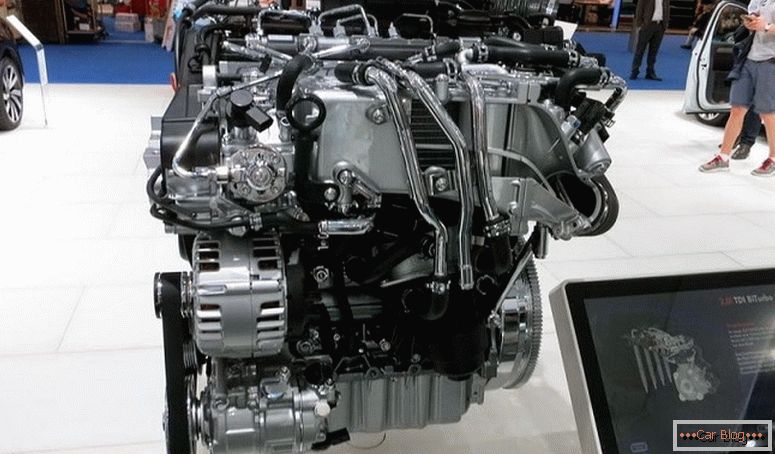
Turbocharged diesel engine
Cost comparison 1 km
If we consider the differences of diesel from gasoline, then in urban conditions it has an average index -5.8 liters / 100 km, but gasoline - 9.2 liters / 100 km. That is, the vehicle is on diesel, 1 km is consumed 0,058 l., and on gasoline - 0.092 л.. In order to calculate how much one kilometer will cost for the price, we take the cost of fuel and multiply by the coefficients given by us - 0.058 for diesel and 0.092 for gasoline. Get prices and compare. It turns out that diesel is more economical.
Conclusion
So, having learned, than gasoline differs from the diesel, it became even more difficult to make a choice in favor of the best engine. Therefore, of course, it is worth relying on: features of the area where the car will be operated, type of driving, plans for use and preferred fuel.

